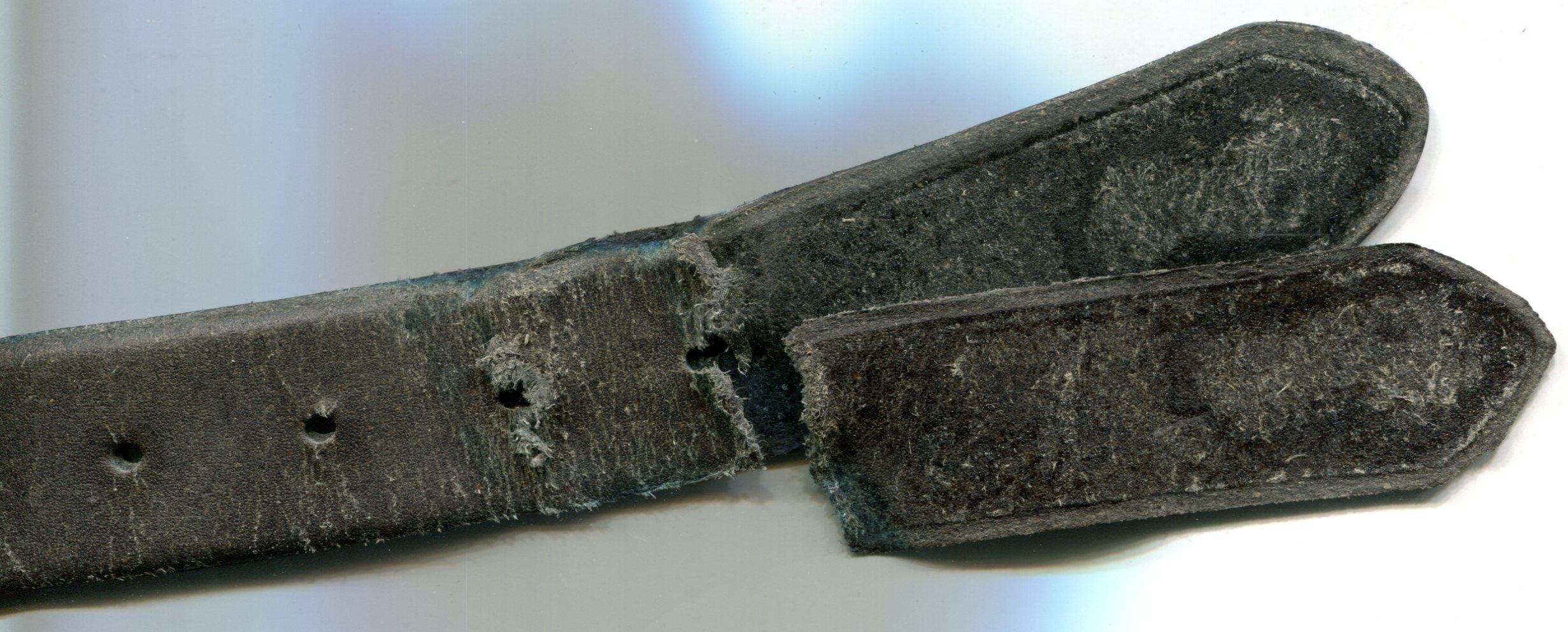Declining summer is a touch melancholy, but it has its charms. Such as soft cricketsong by night.
Late July and early August were drier than the wet weeks of late spring and early summer, but we did get some rain this week, mostly the non-thundering, gentle sort. Earlier this week, I stood outside under the eave over my back door, and heard water flowing vigorously.
Not something you necessarily want to hear near your roof. Soon I figured it out, to my relief. The dry spell had completely dried the gutters out, so that the new water flowed much more freely. That was the sound: rainwater as it coursed through the gutters on its way to the downspout.
Something I’ve noticed in recent years: when you buy an inexpensive men’s belt, you don’t get a decent belt that lasts a few years, though a little worn at the end. You get cheap crap.
That’s the latest belt of mine to fall apart. There’s an industry for you to disrupt, Mr. Millennial looking for the main chance. Make decent belts. Probably someone’s doing that. Decent, maybe, but also priced five times an ordinary belt.
Recently I finished Everybody Behaves Badly, subtitled “The True Story Behind Hemingway’s Masterpiece The Sun Also Rises,” by Leslie M.M. Blume (2016). Well written and full of interesting anecdotes. I knew Sun was a roman à clef but I didn’t know much detail or just how lightly Hemingway fictionalized some of the events, much to the embarrassment of the people who went to Spain with him in the summer of ’25.
Some tidbits: in an early draft of the novel, one of Brett’s brief affairs was said to be with an American named Tom who kept polo ponies. Possibly an allusion to the character Tom Buchanan in The Great Gatsby. Didn’t make the final cut.
Robert Cohn was based on Harold Loeb, an unflattering portrait that shadowed Loeb the rest of his life. Loeb and Hemingway didn’t quite come to blows in Pamplona, however, unlike their characters. They were angry enough at each other to fight, but apparently thought better of it.
Not long after the book came out, Hemingway left his first wife for the woman who would become his second. As part of the divorce, he agreed to give wife #1 Hadley Richardson the royalties from Sun, which would have been considerable. Then again, in marrying wife #2 Pauline Pfeiffer, he was marrying into money.
Now I want to read something different than that milieu. So I picked up a book of Eudora Welty short stories.
